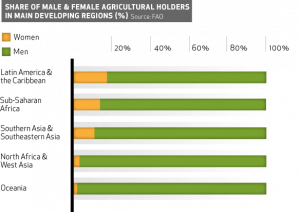In response to: “Womxn, Food, and Security Amid COVID-19 in Yemen” by Amber Torell
Amber’s post addressed the impact of COVID-19 on a group of under-represented and vulnerable people in one of the least developed countries in the world. Sadly, Yemen was a country in crisis before COVID-19. To gain a deeper understanding of the food-aid dimension of the global response to the Yemeni crisis, I visited the USAID website. USAID contributes to the UN WFP and supports NGOs in Yemen. Citing the same geo-political concerns as the WFP, USAID announced their reduction in aid to Yemen, specifically in Houthi dominated regions. Food aid represents an immediate desperate need and signifies a systemic failure in the region. Productive assets, including labor and land, are simply not being used to produce food. To be sure, “Land so pervasively underpins human activity that it usually plays some role during war and civil violence.” (Land and Conflict)
Yemen’s civil war is a factional conflict that has evolved into a humanitarian crisis. For civilians, a sustained state of conflict will put the focus on survival and meeting basic human needs, including food and shelter. Disenfranchised groups may be further marginalized and will need to achieve significant gains politically in order to establish power. Specifically, the role of women in poverty-ridden communities connects to my NGO – Landesa. My group is exploring the impact of COVID-19 on women’s land rights, as it is creating additional economic uncertainty. An imbalance we observe is that women farmers comprise a large majority of those who work directly in agricultural, yet only a fraction of those women are actual landowners. While in the short-run, advocating for women’s involvement in the Yemeni government could result in political unrest, having more women as stakeholders could help stabilize the country and its response to the crisis and lay the groundwork for future changes in rural land rights.

From FAO of the United Nations http://www.fao.org/gender/resources/infographics/the-female-face-of-farming/en/
